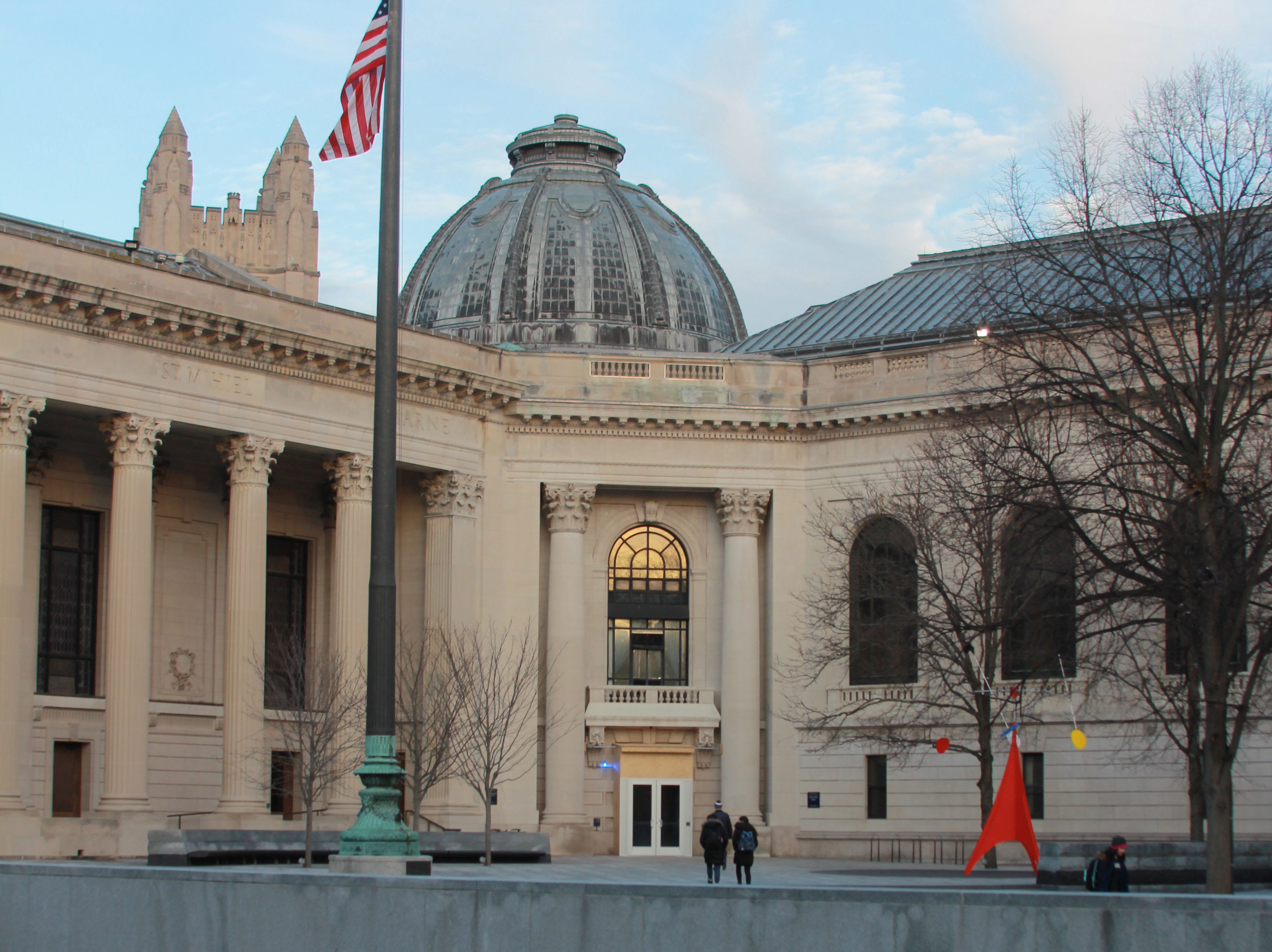
Stephen Schwarzman ’69, Yale benefactor and CEO of the Blackstone Group, has emerged as a prominent figure in President Donald Trump’s administration. But both Yale students and Schwarzman Scholars have expressed discontent with his role in the Trump administration.
On a campus where almost two-thirds of the students identify as “liberal” or “very liberal,” according to an October survey distributed by the News, the Trump administration is widely looked down upon. Though Schwarzman was not affiliated with Trump’s presidential campaign — the investor did not publicly support any candidate in the 2016 election — Schwarzman was appointed in December to chair Trump’s Strategic and Policy Forum, a recurring meeting at which leading American CEOs and business leaders discuss economic growth. Since then, Schwarzman has met with Trump multiple times, discussing trade policies and travelling to Palm Beach, Florida, on Air Force One.
But not all students benefiting from his gifts — Yale students and recipients of his eponymous scholarship — approve of his position. As construction begins on the $150 million Schwarzman Center, students interviewed expressed mixed opinions on Schwarzman’s involvement with the Trump administration.
Elayna Garner ’20, who is affiliated with the Yale College Democrats, expressed discomfort with the association between Yale and the Trump administration and said Yale should not have accepted Schwarzman’s donation so as to avoid appearing partisan. However, as Schwarzman made his large donation to Yale in 2015, she acknowledged that the administration likely cannot change the Schwarzman Center’s name. Katherine Lutz ’20 said that while she disagrees with Trump’s policies, severing all connections that Yale may share with the presidential administration is unrealistic.
Others interviewed by the News, however, were less concerned with Schwarzman’s political involvement.
Lauren Lee ’20, an active member of the Yale Political Union’s Conservative Party, said she does not see this as an issue that pertains to Yale students, as Schwarzman’s work with the current administration is his own prerogative. Students should view Schwarzman’s role as a Trump adviser separately from his relationship to the University. Lee also disagreed with the notion of rejecting the Schwarzman Center’s name, calling it “hypocritical and misguided.”
“If we were to object to Schwarzman’s name on this basis, then we’d also have to reject the naming of Pauli Murray College or the renaming of Calhoun College,” she said. “All of these were done on putatively partisan grounds where the figures themselves and the decisions to change or name the colleges after these figures were due to disagreement of political views.”
Though Schwarzman has not reached out to campus, he recognized that students receiving the Schwarzman scholarship might find his relationship to the administration discomforting.
In a letter to students receiving his scholarship, which provides two years of free study in China, Schwarzman recognized that some scholars were displeased with his decision to chair the president’s forum, and he provided details of his involvement.
“I regret that some scholars have reservations about my following this approach with the new administration in Washington,” Schwarzman wrote in his letter earlier this month. “In life you’ll often find that having influence and providing sound advice is a good thing, even if it attracts criticism or requires some sacrifice.”
According to a transcript from the December forum, Trump said Schwarzman called the president the day after the election to suggest assembling the forum. Trump added in the transcript that Schwarzman ultimately chose each member of the forum, rejecting some of the president’s suggestions of former business partners.
But in the letter to Schwarzman Scholars earlier this month, Schwarzman said the president called him asking if Schwarzman would consider chairing the forum. Schwarzman added in the letter that he has “had face-to-face conversations” with world leaders such as President Xi Jinping of China at the World Economic Forum in Davos and Prime Minister Theresa May of the United Kingdom. Schwarzman also explained that each member of the forum focused on one of six areas: Trump’s recent immigration ban, regulatory changes, tax and trade, women in the workplace issues, infrastructure and education.
There are four Yale alumni on the 19-person Strategic and Policy Forum, including Schwarzman, Indra Nooyi SOM ’80, James McNerney ’71 and Daniel Yergin ’68.







